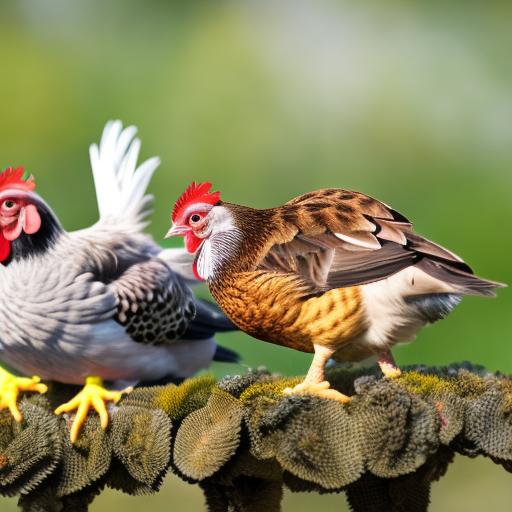Keeping chickens in school is a unique and educational experience that can provide numerous benefits for students. Not only do chickens offer a hands-on learning opportunity, but they also have various environmental, health, economic, social, and life skill benefits. By incorporating chickens into the school environment, students can learn about biology, agriculture, and animal husbandry. Additionally, chickens can help reduce waste, provide natural fertilizer, encourage physical activity, and offer a source of fresh eggs. Furthermore, keeping chickens can teach important life skills such as responsibility, empathy, and problem-solving.
Key Takeaways
- Keeping chickens in school provides educational benefits for students, such as learning about animal care and biology.
- Chickens can also have environmental benefits in schools, such as reducing food waste and providing natural fertilizer.
- Keeping chickens can promote health benefits for students, such as increased physical activity and exposure to nature.
- Schools can also benefit economically from keeping chickens, such as selling eggs or using them in school meals.
- Keeping chickens in school can promote social benefits, such as building community and teaching empathy towards animals.
Educational Benefits of Keeping Chickens in School
Keeping chickens in school can be a great educational tool for students. It provides a hands-on learning experience that allows students to observe and interact with living organisms. By caring for chickens, students can learn about biology, agriculture, and animal husbandry. They can study the life cycle of chickens, learn about their anatomy and physiology, and understand the process of egg production.
Furthermore, keeping chickens in school can also teach students about sustainability and the importance of caring for the environment. Students can learn about the impact of industrial farming on the environment and explore alternative methods such as raising chickens in a more sustainable way.
Environmental Benefits of Keeping Chickens in School
Keeping chickens in school can have several environmental benefits. Chickens are natural composters and can help reduce waste by consuming food scraps and yard waste. Instead of throwing these materials into landfills where they contribute to greenhouse gas emissions, schools can feed them to their chickens. This not only reduces waste but also provides a natural source of fertilizer for gardens or other plants on the school grounds.
Additionally, chickens can help control pests naturally. They eat insects such as slugs, snails, and ticks that can be harmful to plants or carry diseases. By allowing chickens to roam freely in designated areas or using them in rotational grazing systems, schools can reduce the need for chemical pesticides.
Health Benefits of Keeping Chickens in School
Keeping chickens in school can also have several health benefits for students. First and foremost, it encourages physical activity. Taking care of chickens involves tasks such as feeding, watering, cleaning the coop, and collecting eggs. These activities require students to be physically active and can help promote a healthy lifestyle.
Furthermore, having fresh eggs from the chickens can provide a nutritious food source for students. Eggs are a good source of protein, vitamins, and minerals. By incorporating fresh eggs into school meals or allowing students to take them home, schools can contribute to their students’ overall health and well-being.
Economic Benefits of Keeping Chickens in School
Keeping chickens in school can be cost-effective for schools. By raising their own chickens, schools can have a source of food that is both nutritious and affordable. This can help reduce the cost of purchasing eggs or other poultry products for school meals.
Additionally, keeping chickens can also help reduce waste disposal costs. As mentioned earlier, chickens are natural composters and can consume food scraps and yard waste that would otherwise end up in landfills. By feeding these materials to the chickens, schools can reduce the amount of waste they produce and potentially save on waste disposal fees.
Social Benefits of Keeping Chickens in School

Keeping chickens in school can also have social benefits for students. It provides an opportunity for students to work together and develop teamwork skills. Caring for chickens requires cooperation and coordination among students to ensure that all tasks are completed.
Furthermore, keeping chickens can also teach responsibility. Students are responsible for feeding, watering, cleaning the coop, and collecting eggs. They learn the importance of being reliable and accountable for their duties.
Responsibility and Life Skills Learned from Keeping Chickens in School
Keeping chickens in school teaches students important life skills such as responsibility, empathy, and problem-solving. Students learn to take care of another living being and understand the consequences of their actions. They develop empathy by observing and understanding the needs and behaviors of chickens.
Furthermore, keeping chickens can also teach problem-solving skills. Students may encounter challenges such as illness or predators and need to find solutions to these problems. They learn to think critically, analyze situations, and come up with creative solutions.
Chicken Coop Design and Maintenance Tips for Schools
When designing a chicken coop for a school setting, safety should be the top priority. The coop should be secure and predator-proof to ensure the safety of the chickens. It should have sturdy fencing, secure doors, and proper ventilation.
Cleanliness is also important for maintaining a healthy environment for the chickens. The coop should be cleaned regularly to prevent the buildup of waste and bacteria. Bedding material such as straw or wood shavings should be used to absorb moisture and control odor.
Best Practices for Keeping Chickens in School
Proper care and nutrition are essential for keeping chickens healthy in a school setting. Chickens should have access to fresh water at all times and be fed a balanced diet that includes a mix of grains, vegetables, and protein sources. It is important to provide a variety of foods to ensure that the chickens receive all the necessary nutrients.
Regular health checks should also be conducted to monitor the chickens’ well-being. This includes checking for signs of illness or injury, monitoring egg production, and observing their behavior.
Why Every School Should Consider Keeping Chickens
In conclusion, keeping chickens in school provides a unique and educational experience for students. It offers numerous benefits such as educational, environmental, health, economic, social, and life skill benefits. By incorporating chickens into the school environment, students can learn about biology, agriculture, and animal husbandry. They can also develop important life skills such as responsibility, empathy, and problem-solving.
Furthermore, keeping chickens in school can have positive impacts on the environment by reducing waste and providing natural fertilizer. It can also promote physical activity and provide a source of fresh eggs for students. Additionally, it can be cost-effective for schools by providing a source of food and reducing waste disposal costs.
Overall, keeping chickens in school is a worthwhile endeavor that can provide a unique and educational experience for students. It offers numerous benefits and should be considered by every school looking to provide a well-rounded education for their students.
If you’re interested in the benefits of keeping chickens in school, you’ll definitely want to check out this informative article on poultrywizard.com. It explores the importance of the floor of a chicken coop and how it can impact the health and well-being of your feathered friends. From discussing different flooring materials to providing tips on proper maintenance, this article offers valuable insights for creating a safe and comfortable environment for your school’s chickens. To learn more, click here: https://poultrywizard.com/keeping-chickens/floor-of-chicken-coop/.
FAQs
What are the benefits of keeping chickens in school?
Keeping chickens in school has numerous benefits. It can provide students with hands-on learning experiences, teach them about responsibility, and promote healthy eating habits.
What educational opportunities can keeping chickens in school provide?
Keeping chickens in school can provide students with opportunities to learn about biology, agriculture, and animal husbandry. It can also teach them about the food system and the importance of sustainable practices.
What are the benefits of students learning about responsibility through keeping chickens?
Learning about responsibility through keeping chickens can help students develop important life skills such as time management, organization, and accountability. It can also teach them about the importance of caring for animals and the environment.
How can keeping chickens in school promote healthy eating habits?
Keeping chickens in school can promote healthy eating habits by providing students with fresh eggs and encouraging them to eat a balanced diet. It can also teach them about the benefits of eating locally sourced and sustainable food.
What are some potential challenges of keeping chickens in school?
Some potential challenges of keeping chickens in school include ensuring proper care and maintenance of the chickens, managing potential health risks, and addressing any concerns from community members. It is important to have a plan in place to address these challenges before implementing a chicken program in a school.
Meet Walter, the feathered-friend fanatic of Florida! Nestled in the sunshine state, Walter struts through life with his feathered companions, clucking his way to happiness. With a coop that’s fancier than a five-star hotel, he’s the Don Juan of the chicken world. When he’s not teaching his hens to do the cha-cha, you’ll find him in a heated debate with his prized rooster, Sir Clucks-a-Lot. Walter’s poultry passion is no yolk; he’s the sunny-side-up guy you never knew you needed in your flock of friends!







